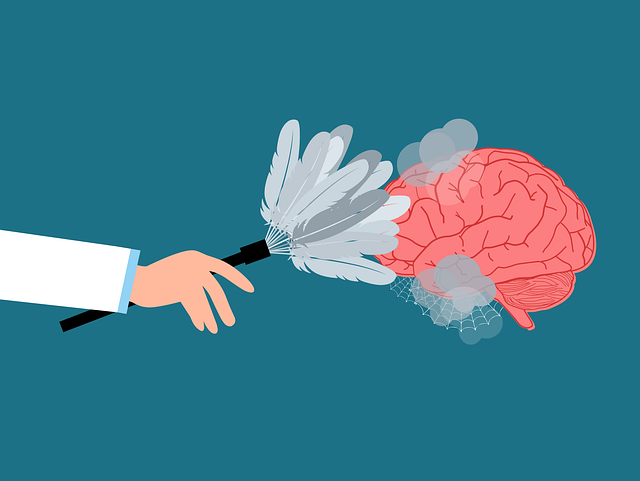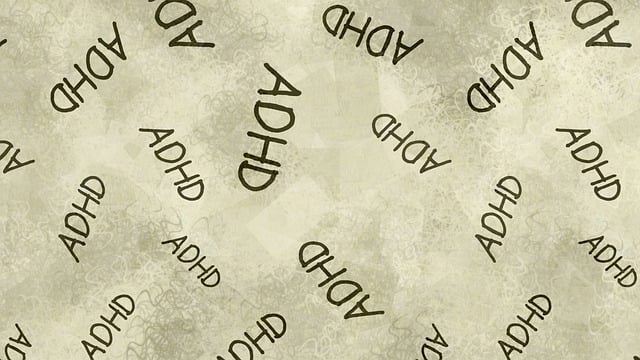Depression impacts people of all ages differently, requiring tailored approaches for adults, adolescents, and teens. Effective prevention and treatment involve a combination of therapy (e.g., CBT, IPT), risk assessment, and comprehensive strategies addressing physical activity, sleep, diet, and social connections. Loneliness is a significant risk factor, emphasizing the importance of fostering strong social networks through open communication, support groups, and community activities. Self-care practices like exercise, mindfulness, and quality sleep build emotional resilience, while professional support from therapy or coaching enhances coping mechanisms and prevents depressive episodes across all stages of life, with a focus on tailored care for adults, adolescents, and teens.
Depression is a prevalent yet complex condition affecting individuals across all age groups. This article delves into comprehensive strategies for prevention, offering valuable insights for those seeking to safeguard their mental health. From understanding depression’s subtle signs to exploring effective therapy options tailored for adults, adolescents, and teens, we provide practical steps. Additionally, we highlight lifestyle changes, the power of support systems, and essential self-care practices, empowering readers with tools to maintain emotional well-being and prevent depressive episodes.
- Understanding Depression: Recognizing Symptoms Across Age Groups
- The Role of Therapy: Effective Treatments for Adults, Adolescents, and Teens
- Lifestyle Changes: Preventive Measures for a Balanced Mind
- Building Support Systems: Connecting with Others to Combat Loneliness
- Self-Care Practices: Empowering Tools for Emotional Wellbeing
Understanding Depression: Recognizing Symptoms Across Age Groups

Depression is a complex mental health disorder that affects individuals across all age groups, with distinct presentations in adults, adolescents, and teens. Recognizing symptoms early on is crucial for effective prevention and treatment. While adult depression often manifests as persistent sadness, loss of interest, and changes in appetite or sleep patterns, younger individuals may display different signs, such as irritability, anger, and difficulties at school.
In adolescents and teens, understanding the nuances of emotional development is essential. A sudden withdrawal from social activities, decreased academic performance, and extreme mood swings could indicate underlying depression. Addressing these issues promptly involves encouraging open communication, promoting self-care routines for better mental health, and, when necessary, seeking therapy tailored to their age group. Additionally, trauma support services and resilience-building activities can play a significant role in preventing and managing depression at any stage of life.
The Role of Therapy: Effective Treatments for Adults, Adolescents, and Teens

Depression prevention strategies often include therapy, which plays a pivotal role in effective treatment for adults, adolescents, and teens alike. Cognitive Behavioral Therapy (CBT), one of the most widely recognized therapeutic approaches, has proven successful in helping individuals identify and change negative thought patterns and behaviors contributing to depression. This evidence-based method teaches practical coping skills, enhances emotional regulation, and builds resilience against depressive episodes.
Additionally, Interpersonal Therapy (IPT) is particularly beneficial for teens and adolescents, focusing on improving relationships and social functioning. By addressing issues like loneliness, conflict, or loss, IPT helps young individuals develop better interpersonal skills and a stronger sense of self-worth. Moreover, mental health professionals employ Risk Assessment tools to gauge potential risks and provide tailored interventions, especially in cases where depression co-occurs with other mental health disorders or substance abuse. These comprehensive approaches aim to not only manage symptoms but also foster confidence-boosting strategies for long-term mental well-being.
Lifestyle Changes: Preventive Measures for a Balanced Mind

Depression is a complex condition that can be prevented through proactive lifestyle changes. Encouraging regular physical activity, for instance, has been shown to boost mood and reduce symptoms of depression. Incorporating activities like walking, yoga, or team sports into daily routines can help maintain mental health balance. Additionally, prioritizing quality sleep and adopting healthy eating habits are essential preventive measures that support overall well-being.
Beyond physical aspects, fostering social connections and seeking therapy for adults, adolescents, and teens play crucial roles in depression prevention. Building a strong support network through meaningful relationships can provide emotional resilience. Mental health policy analysis and advocacy also highlight the importance of accessible mental wellness resources, ensuring individuals have the tools to improve self-esteem and cope with life’s challenges effectively.
Building Support Systems: Connecting with Others to Combat Loneliness

Loneliness can be a significant trigger for depression, making it crucial to build strong support systems and connect with others. Social connections play a vital role in maintaining mental health, offering a sense of belonging and purpose. For adults, adolescents, and teens, engaging in open conversations about feelings with trusted friends or family members can help reduce the burden of isolation. Joining support groups or community activities provides opportunities to meet like-minded individuals, fostering new friendships and alleviating loneliness.
In the context of burnout prevention strategies for healthcare providers, building support systems is not just beneficial for individuals; it’s essential for maintaining a healthy work environment. Trauma support services and conflict resolution techniques can further enhance these connections, ensuring that relationships remain positive and supportive. By integrating these practices into daily life, individuals can better navigate challenging situations and strengthen their resilience against depression.
Self-Care Practices: Empowering Tools for Emotional Wellbeing

Self-care practices are essential tools for building emotional resilience and preventing depression. By prioritizing their mental wellness, individuals can cultivate inner strength and develop effective coping strategies. Simple yet powerful self-care routines, such as regular exercise, mindfulness meditation, and quality sleep, play a significant role in regulating emotions and reducing stress levels. These practices enable adults, adolescents, and teens to navigate life’s challenges with greater ease, fostering a sense of calm and emotional balance.
Incorporating activities that nurture the mind and body can initiate profound emotional healing processes. Engaging in hobbies, spending time in nature, or connecting with loved ones are all forms of self-care that contribute to mental wellness. Additionally, seeking support from therapy for adults, adolescents, and teens can be transformative, offering specialized guidance tailored to individual needs. Mental wellness coaching programs further empower individuals to develop coping mechanisms, enhance their emotional intelligence, and cultivate a positive mindset, ultimately preventing depressive episodes.
In conclusion, depression prevention is a multifaceted approach that combines understanding symptoms across age groups, seeking appropriate therapy for adults, adolescents, and teens, adopting balanced lifestyle changes, building robust support systems, and cultivating self-care practices. By integrating these strategies into daily life, individuals can better navigate emotional challenges and enhance their overall mental wellbeing.














